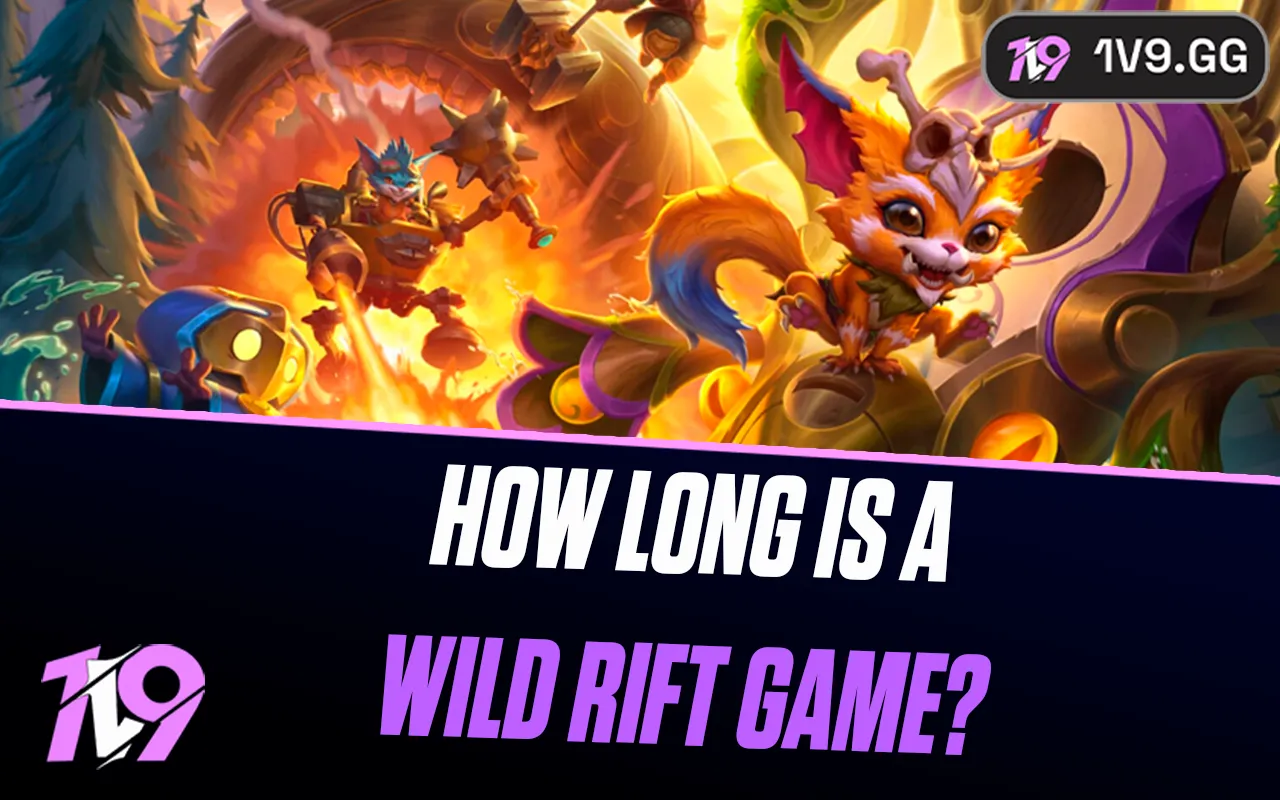- Home
Games
 League of Legends
League of Legends Valorant
Valorant-a6d5b3e156bb.webp) Fortnite
Fortnite Call of Duty
Call of Duty Clash of Clans
Clash of Clans GTA 5
GTA 5 Counter-Strike 2
Counter-Strike 2 Roblox
Roblox Rainbow Six Siege
Rainbow Six Siege Clash Royale
Clash Royale Minecraft
Minecraft Dota 2
Dota 2 Rocket League
Rocket League Genshin Impact
Genshin Impact Squad Busters
Squad Busters Rust
Rust Apex Legends
Apex Legends Pokemon Go
Pokemon Go XDefiant
XDefiant Hay Day
Hay Day LoL: Wild Rift
LoL: Wild Rift Diablo 4
Diablo 4 World of Warcraft
World of Warcraft Destiny 2
Destiny 2 FC 25
FC 25 Marvel Rivals
Marvel Rivals-9ede9dc6b01b.webp) PUBG Mobile
PUBG Mobile The Finals
The Finals Deadlock
Deadlock Forza Horizon 5
Forza Horizon 5 Growtopia
Growtopia Honkai: Star Rail
Honkai: Star Rail 8 Ball Pool
8 Ball Pool Warframe
Warframe Zenless Zone Zero
Zenless Zone Zero Runescape 3
Runescape 3 Path of Exile
Path of Exile Raid: Shadow Legends
Raid: Shadow Legends Lost Ark
Lost Ark WoW: Classic Era
WoW: Classic Era Summoners War
Summoners War WoW: Season of Discovery
WoW: Season of Discovery WoW Cataclysm
WoW Cataclysm WoW: Hardcore
WoW: Hardcore Throne and Liberty
Throne and Liberty New World
New World Mobile Legends
Mobile Legends Escape From Tarkov
Escape From Tarkov Path of Exile 2
Path of Exile 2 Blade Ball
Blade Ball Fisch
Fisch Pet Simulator 99
Pet Simulator 99 Pets Go
Pets Go-d8bcef7708c7.webp) One Piece Bounty
One Piece Bounty Anime Adventures
Anime Adventures Blox Fruits
Blox Fruits Adopt Me
Adopt Me Murder Mystery 2
Murder Mystery 2 Fragpunk
Fragpunk Wuthering Waves
Wuthering Waves Teamfight Tactics
Teamfight Tactics Free Fire
Free Fire Albion Online
Albion Online Black Desert Online
Black Desert Online Brawl Stars
Brawl Stars Honor of Kings
Honor of Kings Arena of Valor
Arena of Valor Call of Duty: Mobile
Call of Duty: Mobile Rematch
Rematch Steal a Brainrot
Steal a Brainrot Grow a Garden
Grow a Garden FC 26
FC 26 Plants vs Brainrots
Plants vs Brainrots Old School Runescape
Old School Runescape Overwatch 2
Overwatch 2 Battlefield
Battlefield Arc Raiders
Arc Raiders Dragon Ball Legends
Dragon Ball Legends Fallout 76
Fallout 76 Jailbreak
Jailbreak Type Soul
Type Soul GPO
GPO DonutSMP
DonutSMP Escape Tsunami For Brainrots
Escape Tsunami For Brainrots Watcher of Realms
Watcher of Realms Roblox Rivals
Roblox Rivals- Lootboxes
- Become Affiliate
- Blog
- Contact Us
- Sign In

LP in League of Legends Explained: What are League Points and how to earn them
League Points (LP) serve as the metric for tracking a player's progress and skill level in League of Legends, akin to ELO or MMR systems in other competitive games. To climb the ranks in LoL, players must accumulate LP, typically requiring a total of 100 LP to advance from one division to the next within their rank. However, reaching this LP threshold triggers a series of promotional matches rather than an automatic promotion. Players must secure a victory in at least 3 out of these 5 crucial matches to ascend to the next division or rank.
Conversely, a player's rank can decline if they lose a significant amount of LP, especially when they are at the brink of demotion with 0 LP. For instance, a player in the Gold IV division who loses a match at 0 LP would be demoted to Silver I, necessitating a climb back to 100 LP to attempt re-entry into Gold. This system ensures a competitive environment where promotions are earned through consistent performance and resilience in the face of setbacks.
How to get LP?
 arning League Points (LP) in League of Legends is straightforward: winning matches is the key. The amount of LP gained or lost after each match is influenced by the player's Matchmaking Rating (MMR), an underlying metric that reflects their skill level and is not directly visible. Players with higher MMRs will find themselves rewarded with more LP for each victory and facing smaller deductions for losses. This system ensures that players are matched according to their skill level, promoting fair competition and encouraging improvement to climb the ranks effectively.
arning League Points (LP) in League of Legends is straightforward: winning matches is the key. The amount of LP gained or lost after each match is influenced by the player's Matchmaking Rating (MMR), an underlying metric that reflects their skill level and is not directly visible. Players with higher MMRs will find themselves rewarded with more LP for each victory and facing smaller deductions for losses. This system ensures that players are matched according to their skill level, promoting fair competition and encouraging improvement to climb the ranks effectively.
Is there a maximum amount of LP?
In League of Legends, there's no cap on the amount of League Points (LP) a player can accumulate. The accumulation of LP is a reflection of a player's success and prowess in match outcomes. As players secure victories, their LP tally grows accordingly. Nonetheless, while there's no upper limit to LP, each league in the game does have a pinnacle rank. Upon reaching this zenith, players find themselves at a plateau, as further LP gains are not possible at this stage.
The pinnacle rank varies across leagues, with the Challenger tier standing as the apex of competitive play. Achieving the top rank in any given league signifies a momentary halt in the LP journey, necessitating players to engage in promotional matches if they wish to ascend into a more prestigious league. This structure ensures that the pursuit of excellence in League of Legends is both challenging and rewarding, with clear milestones marking the path to competitive glory.
What can you do to earn LP?
To accrue League Points (LP) in League of Legends, the primary method is through triumphing in matches, which directly influences a player's ascent through the game's ranking system. Each victory contributes to an increase in a player's LP, with the magnitude of LP gain influenced by several factors, including the player's current standing and the rank of the opponents they best. Notably, securing victories against opponents of a higher rank can yield a more significant LP boost, rewarding players for overcoming challenging matchups.
Beyond the straightforward win-loss dynamics, players can enhance their LP earnings by hitting specific performance milestones. These include streaks of consecutive wins or achieving outstanding performance metrics within games, such as a high kill/death/assist (KDA) ratio. Such achievements not only bolster a player's LP but also underscore the importance of consistent, high-caliber play.
In essence, the most effective strategy for earning LP and advancing in League of Legends hinges on a simple yet challenging principle: win more matches, particularly against formidable opponents, and strive for excellence in individual performance.
Why is the LP gain sometimes so low?

The variation in League Points (LP) gains post-match in League of Legends stems from a blend of factors intricately tied to both the player's and their opponents' ranks, as well as in-game performance metrics. Principally, the system is designed to reward more LP when a player secures a victory against an opponent of higher rank, reflecting the greater challenge overcome. Conversely, wins against lower-ranked opponents yield lesser LP gains, reflecting the expected outcome based on ranking disparities.
Performance in individual matches also plays a crucial role; stellar gameplay can lead to higher LP gains, while underperformance might result in minimal LP increments. This system encourages not just winning but excelling in matches.
Another critical factor is the concept of LP decay, a mechanism aimed at maintaining competitive integrity within the game's ecosystem. LP decay gradually reduces the LP of players who haven't participated in ranked matches over an extended period. This ensures that rankings remain dynamic and reflective of current playing standards, preventing inactive players from stagnating the competitive ladder. Thus, players returning after a hiatus may notice reduced LP gains as a consequence of this decay, pushing them to engage more actively to reclaim and enhance their standings.
What to do if my LP gain is around +2?
Experiencing minimal LP gains, such as around +2 per win, suggests you're encountering a plateau in your League of Legends climb, but this scenario is unlikely due to LP decay, as LP decay would actually reduce your total LP if you were inactive, not affect gains from playing. A more plausible reason for such small LP gains could be that your Matchmaking Rating (MMR) is significantly lower than the average for your current rank. In League of Legends, your LP gains are heavily influenced by the relationship between your MMR and your current rank. When your MMR is much lower than what's typical for your rank, the system compensates by reducing the LP you gain from wins, thereby suggesting you need to improve to truly belong at your current rank or climb higher.
To address this, focus on consistently improving your gameplay, as victories against higher-ranked opponents can help increase your MMR, leading to better LP gains. Engaging in regular matches and striving for consistent performance improvements are key. Additionally, consider reviewing and refining your strategies, learning from each match regardless of its outcome, and possibly seeking feedback or coaching to enhance your skills. The goal is to align your MMR with or exceed the expectations for your current rank, which will normalize or even increase your LP gains per victory.
How fast is the LP decay?
The speed of League Points (LP) decay in League of Legends is tailored to reflect both the competitive tier of play and the geographical region of the player. Typically, players in the upper echelons of the game's ranking system, such as those in the higher leagues, will see their LP diminish at a quicker pace if they're not maintaining active participation in ranked matches. This system is designed to ensure that the highest levels of play remain dynamic and competitive, encouraging consistent engagement from those at the top.
Moreover, the specific parameters governing LP decay can differ significantly across various leagues and regions, adapting to the unique competitive landscape and player base of each. This means that the exact rate at which LP decreases due to inactivity is not one-size-fits-all but is instead customized to sustain a fair and competitive environment tailored to each league's standards.
For the most accurate and up-to-date information regarding the rate of LP decay applicable to you, it's advisable to consult the official League of Legends documentation or support resources pertinent to your league and region. These resources will provide detailed guidelines and rules surrounding LP decay, helping you understand how to best maintain your rank and minimize the impact of decay on your standing in the game.
How can you exploit the LP system to gain LP faster?

Attempting to manipulate or exploit the League Points (LP) system in League of Legends for accelerated gains is not a viable strategy. The LP system is meticulously engineered to accurately represent a player’s skill and progress, with LP gains and losses based directly on match performance and relative rankings. Engaging in practices aimed at exploiting this system, such as deliberately facing lower-ranked opponents or participating in account boosting (where another player uses your account to win games), is against the game’s terms of service and can lead to severe repercussions, including account suspension or ban.
It's crucial to understand that ethical gameplay and consistent improvement are the only legitimate ways to advance in League of Legends. The game rewards skill, strategy, and teamwork, and there are no shortcuts to genuine progress. Players are encouraged to focus on enhancing their abilities, understanding game mechanics, and working effectively with their teams. By doing so, not only do you adhere to the spirit of fair play, but you also enrich your gaming experience and naturally progress through the ranks, earning LP as a true reflection of your growth and achievements in the game.
What is the impact of MMR in LP gains?

The impact of Matchmaking Rating (MMR) on League Points (LP) gains in League of Legends is substantial and fundamental to the game's competitive ranking system. MMR is a hidden score that represents a player's skill level, which the game uses to match players of similar abilities in ranked games. This rating is crucial for ensuring fair and balanced matches, but it also plays a pivotal role in determining the amount of LP a player gains or loses after each match.
- Alignment with Rank: If your MMR is higher than what's typical for your current rank, the system perceives you as being placed too low and, consequently, rewards you with more LP for wins and deducts less LP for losses. This encourages quicker progression to ranks that better match your skill level.
- Consequences of Discrepancy: Conversely, if your MMR is lower than the average for your rank, the system will reduce the LP gained from wins and increase the LP lost from defeats. This mechanism aims to realign your rank with your actual skill level, ensuring that each league and division accurately reflects the abilities of the players within it.
- Promotion and Demotion Protection: MMR can also affect your promotion series and protection against demotion. Players with significantly high MMR might skip ranks or divisions upon promotion, while those with low MMR might find themselves facing demotion with fewer losses at 0 LP.
- Stabilization of Ranks: Over time, the impact of MMR on LP gains and losses helps to stabilize the ranking ladder, ensuring that players find their correct placement according to their skill level. This creates a more competitive and rewarding environment, where progress is a direct result of improving one's gameplay and strategic understanding.
In essence, MMR acts as the backbone of the LP system, guiding players through their competitive journey in a way that fosters growth, challenges, and a fair competitive landscape. Understanding the relationship between MMR and LP gains is key for players aiming to climb the ranks in League of Legends, highlighting the importance of consistent performance improvement and perseverance in the face of challenges.
Start playing a fresh account can improve your LP Gains?
Starting on a fresh account in League of Legends can be seen as an opportunity to achieve better LP (League Points) gains for several reasons, particularly for players who believe their current rank does not accurately reflect their skill level or those looking to recalibrate their matchmaking rating (MMR):
- Resetting MMR: A new account begins with a baseline MMR, which means your past performances don’t weigh down your potential for LP gains. If you’ve significantly improved since you first started playing, a fresh account allows you to establish a new MMR that more accurately reflects your current skill level, potentially resulting in more favorable LP gains as you start climbing the ranks.
- Efficient Progression: For experienced players, the initial matches on a new account can lead to substantial LP gains, especially if they consistently win games. This is because the system is trying to quickly determine the appropriate rank for the player, and high performance can lead to rapid ascension through the ranks.
- Learning and Experimentation: Starting anew allows players to experiment with different roles, champions, or strategies without the risk of damaging the MMR on their main account. This period of learning and experimentation can lead to a better understanding of the game, which in turn could result in higher performance and LP gains once the player starts focusing on climbing the ranks.
- Overcoming Plateaus: Players stuck at a certain rank on their main account due to a stagnated MMR might find it easier to progress on a fresh account. Without the history of wins and losses, players have a clean slate to demonstrate their skills and climb the ladder more effectively.
- Psychological Benefits: The psychological aspect of starting fresh, without the burden of past losses or a rank that doesn’t reflect one’s current ability, can be motivating. This positive mindset can lead to better in-game decisions, improved performance, and, consequently, more significant LP gains.
However, it's important to note that while starting on a fresh account can offer these advantages, true progress in League of Legends comes from improving one's skills and understanding of the game. Additionally, players considering this approach should be mindful of the time and effort required to level up a new account to access ranked play, as well as the ethical considerations and the game's policies regarding account creation and use.
Conclusion
understanding the dynamics of LP (League Points) gains in League of Legends is crucial for anyone looking to navigate the ranked ladder effectively. The system, designed to reflect a player's skill level through their MMR (Matchmaking Rating), ensures that LP gains and losses are more than just outcomes of wins and losses; they are a measure of performance, growth, and the competitive journey. Whether you're starting on a fresh account to recalibrate your MMR or pushing through the ranks on your main, the principles of consistent improvement, strategic gameplay, and teamwork remain key to maximizing your LP gains.
Professional players' use of fresh accounts highlights strategies for efficient practice, anonymity, and content creation, underscoring the multifaceted approach to climbing the ranked ladder. For the average player, these insights offer lessons in adaptability, the importance of a positive mindset, and the value of understanding the game's deeper mechanics.
As you embark on or continue your journey in League of Legends, remember that the quest for LP is not just about the destination but the growth you experience along the way. Embrace each match as an opportunity to learn, improve, and ultimately, enjoy the game. With dedication, strategy, and a bit of resilience, the ranks will unfold before you, not just as a reflection of your skill but as a testament to your journey in the vast and competitive world of League of Legends.
Posted On: February 4th, 2024
Recent Articles
💬 Need help?
Our 1v9 support team is available 24/7 to help you with any questions or issues you may have.
support@1v9.gg
Loading...
1v9.gg is not endorsed or affiliated by any game developers or publishers.
2025 1v9, All Rights Reserved, Created By NightDev






